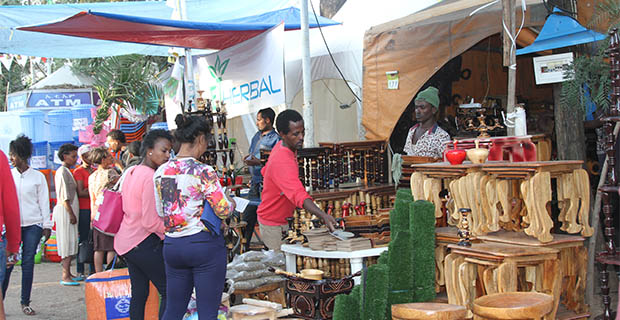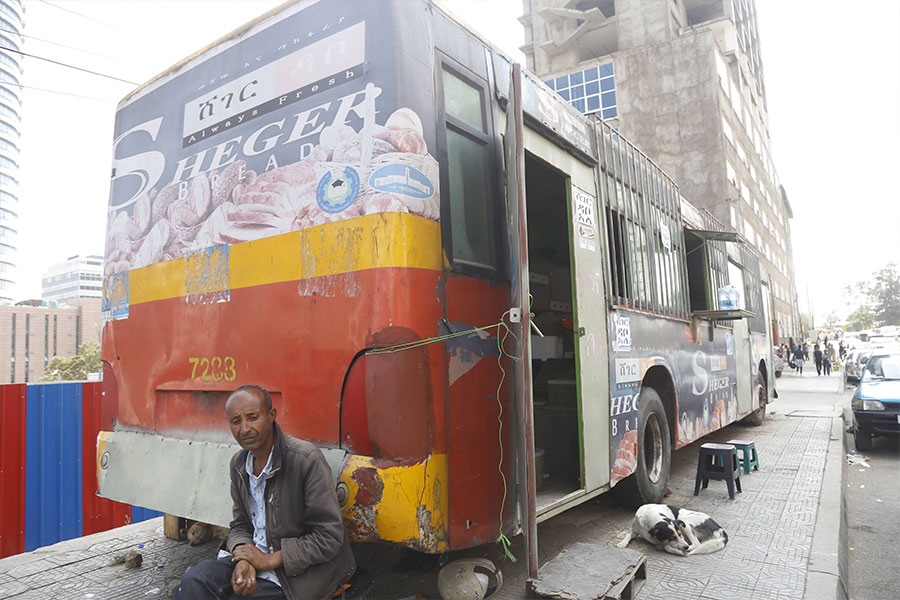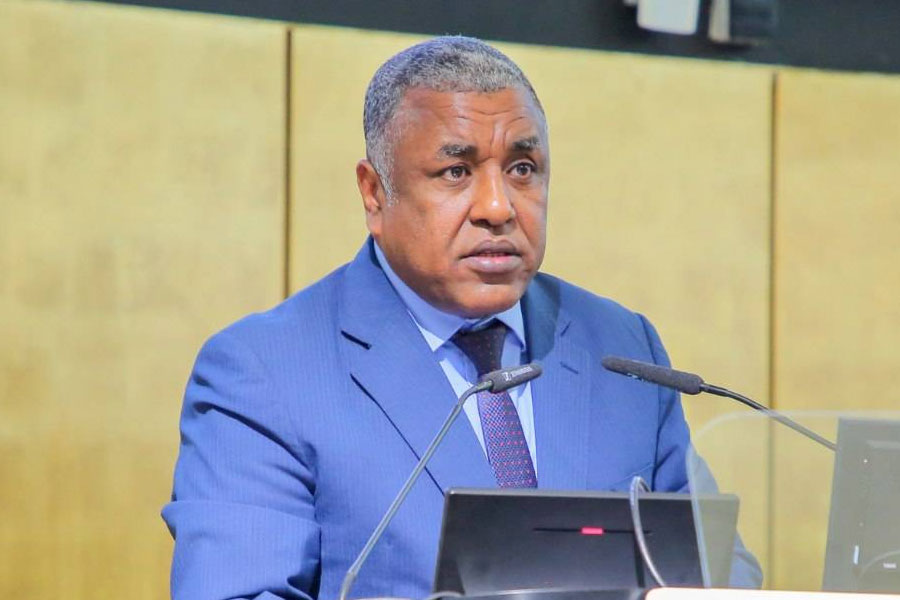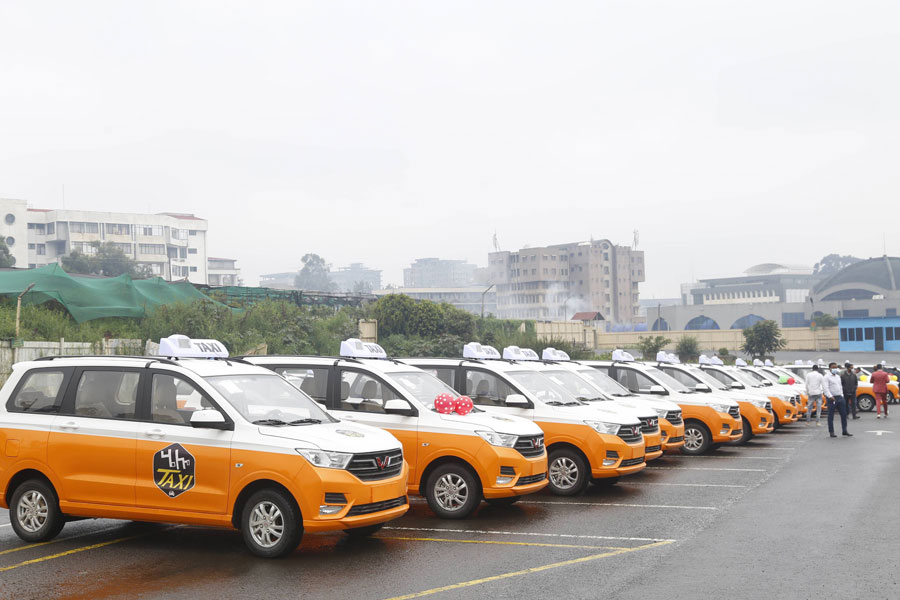
Radar | Dec 10,2022
Aug 3 , 2019
By Tsion Fisseha
In a country filled with differences, it is rare to see everyone come together, celebrating one cause. Last week the cause that brought people from across the spectrum together was the concept of humanity.
Prime Minister Abiy Ahmed (PhD), after setting an example of cleaning the capital, Addis Abeba, set out to plant 200 million seedlings by echoing the words “leaving our green footprints.” This initiative has brought people from different corners of life and made them one. It also allowed Ethiopia to break the world record that was held by India by planting more than 350 million seedlings in a day.
Our planet looks like it has an expiration date. With human needs skyrocketing by the minute, it has been overused and abused in order to satisfy them. Trees have been cut down to make homes and coffee tables, water has been polluted, animals have been killed, and the air has been damaged for generations. The human race has somehow managed to impact three out of the four classical elements negatively: earth, fire, wind and water.
While the fact remains scary, actions have not been taken in the needed magnitude to overcome the struggle. While some leaders, against all evidence, still believe that the concept of global warming is a hoax or a myth, global citizens also seem to be neglecting the planet that is keeping them alive.
Studies show that our addiction to fossil fuels releases enormous amounts of carbon dioxide into the atmosphere. This ultimately leads to global warming.
However, facts and figures are being ignored. Humans continue to live in their lavish ways and extravagant lifestyles while their one and only home is dying.
The poet, Propaganda, once said that humans “seemed to be helplessly selfish and bent on their own destruction,” in describing the destructive ways people act toward nature.
Ethiopia, having understood this particular problem, has taken the initiative to plant seeds of hope. The job to save this planet, however, is just beginning. The planting of the seedlings is just the tip of the iceberg.
These trees need to be nurtured and cared for. This event need not be a once in a lifetime occurrence. And people need to be aware of their responsibility to follow through with their commitments.
Planting seedlings, while commendable, is not enough. Ethiopia needs to be more environmentally friendly and conscious. At the site that I planted a seedling in, I noticed how plastic bags were thrown out randomly, causing a different type of pollution that might end up being another headache for the coming years.
The government of Ethiopia, having set a higher standard, is also expected to continue encouraging acts that make this world a better place to live in.
During the campaign of the tree planting initiative, people from different walks of life expressed some cynical sentiments about the initiative. Some deemed it useless for, as they put it, it was just a publicity stunt made by the government. Despite these allegations and possible “shortcomings”, the country along with its allies has come together to try to find ways to breathe fresh air and breathe life into the coming generation.
Ethiopia should now be more than motivated to be a part of the change. Ethiopians should be a symbol of resilience and cleanliness, along with freedom and liberty. Trees are beyond leaves and bark. They are the source of life, and we must help them grow so that they can, in turn, help us live.
The former United Nations Secretary-General, Ban Ki-moon said, “We are the first generation to be able to end poverty and the last generation that can take steps to avoid the worst impacts of climate change. Future generations will judge us harshly if we fail to uphold our moral and historical responsibilities.”
PUBLISHED ON
Aug 03,2019 [ VOL
20 , NO
1005]


Radar | Dec 10,2022

Fortune News | Dec 29,2018

Fortune News | May 04,2025

Fortune News | Apr 30,2021

Radar | Apr 16,2022

My Opinion | Sep 18,2021

Agenda | Dec 19,2021

Radar | Jun 15,2025

Featured | Feb 20,2021

Commentaries | Jan 03,2021

My Opinion | 131969 Views | Aug 14,2021

My Opinion | 128359 Views | Aug 21,2021

My Opinion | 126296 Views | Sep 10,2021

My Opinion | 123912 Views | Aug 07,2021

Dec 22 , 2024 . By TIZITA SHEWAFERAW
Charged with transforming colossal state-owned enterprises into modern and competitiv...

Aug 18 , 2024 . By AKSAH ITALO
Although predictable Yonas Zerihun's job in the ride-hailing service is not immune to...

Jul 28 , 2024 . By TIZITA SHEWAFERAW
Unhabitual, perhaps too many, Samuel Gebreyohannes, 38, used to occasionally enjoy a couple of beers at breakfast. However, he recently swit...

Jul 13 , 2024 . By AKSAH ITALO
Investors who rely on tractors, trucks, and field vehicles for commuting, transporting commodities, and f...

Jul 5 , 2025
Six years ago, Ethiopia was the darling of international liberal commentators. A year...

Jun 28 , 2025
Meseret Damtie, the assertive auditor general, has never been shy about naming names...

Jun 21 , 2025
A well-worn adage says, “Budget is not destiny, but it is direction.” Examining t...

Jun 14 , 2025
Yet again, the Horn of Africa is bracing for trouble. A region already frayed by wars...

Jul 6 , 2025 . By BEZAWIT HULUAGER
The federal legislature gave Prime Minister Abiy Ahmed (PhD) what he wanted: a 1.9 tr...

Jul 6 , 2025 . By YITBAREK GETACHEW
In a city rising skyward at breakneck speed, a reckoning has arrived. Authorities in...

Jul 6 , 2025 . By NAHOM AYELE
A landmark directive from the Ministry of Finance signals a paradigm shift in the cou...

Jul 6 , 2025 . By NAHOM AYELE
Awash Bank has announced plans to establish a dedicated investment banking subsidiary...